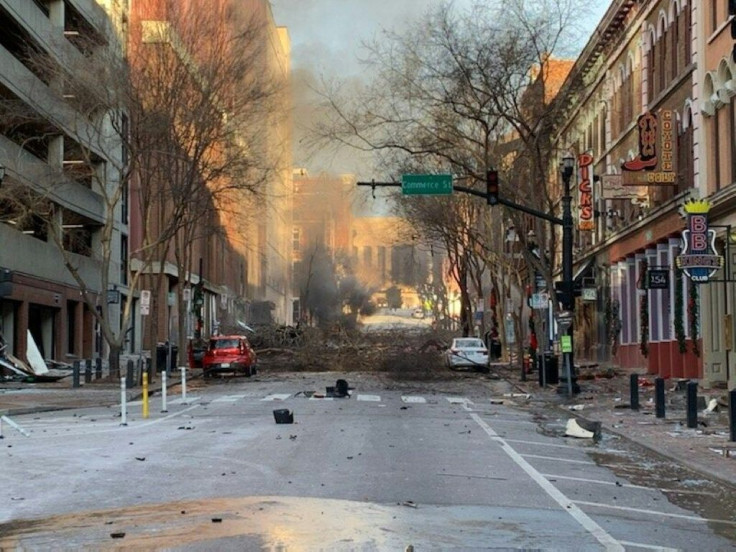Nashville Bomber's Girlfriend Warned Police In 2019; Why Was He 'Not On Our Radar'?
KEY POINTS
- An inquiry shows police were warned the Nashville bomber was making explosive devices in 2019
- The bomber's girlfriend and her lawyer both told police he was a serious threat
- Police did not gain access to his house and national checks pulled up nothing, so the investigation was dropped
After Anthony Warner’s RV detonated in downtown Nashville on Christmas, police said that the suspect was “not on our radar.” This contradicts a report by The Tennessean that Warner’s girlfriend warned authorities 16 months prior that he “was building bombs in the RV trailer at his residence.”
Details from a house-check in August 2019 show that police were called by Raymond Throckmorton III, Warner's girlfriend's attorney, to her home during a mental health crisis. When police arrived, she was sitting on the porch with two unloaded guns.
She told them the guns belonged to Warner and that she “did not want them in the house any longer,” Metro Nashville Police Department spokesman Don Aaron told The Tennessean.
The woman, who later agreed to go to the hospital for a psychiatric evaluation, also told police that Warner had made comments about building bombs. Throckmorton warned the police as well, saying that Warner “frequently talks about the military and bomb-making.”
“[He] knows what he is doing and is capable of making a bomb,” Throckmorton told the officers.

Authorities then went to Warner’s house to investigate but knocks on the door were not answered. The yard where the RV was situated was fenced off, and there were “several security cameras and wires attached to an alarm sign on the front door."
“They saw no evidence of a crime and had no authority to enter his home or fenced property," Aaron said.
Without access to Warner or his property, officers sent inquiries to higher-ups and national organizations. A check from the FBI found no record of Warner and the Department of Defense reported that “checks on Warner were all negative.”
Police returned to Throckmorton to request access to Warner’s house or to interview him in late August 2019, requests which were rebuffed. Police were told that Warner “did not care for the police” and that they did not have permission to inspect his RV.
Throckmorton contests this account, telling the publication he has no memory of telling police they couldn’t inspect the RV. He noted that Warner was not a client of his at the time and he couldn’t have given police consent to a search.
Warner had only been arrested once before in 1978 for marijuana possession. Still, Throckmorton says the warnings should have been enough to prompt a more thorough investigation.
"Somebody, somewhere dropped the ball," he said.
Warner died in the Dec. 25 explosion. Prior to the blast, Warner's vehicle played an evacuation warning message. Three people were injured in the attack which also caused damage to over 40 businesses and led to communication blackouts across the Nashville region.
© Copyright IBTimes 2025. All rights reserved.





















